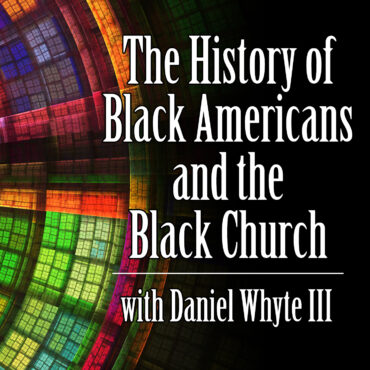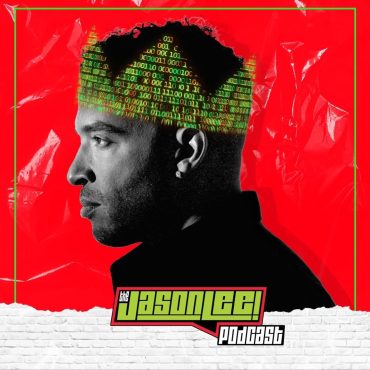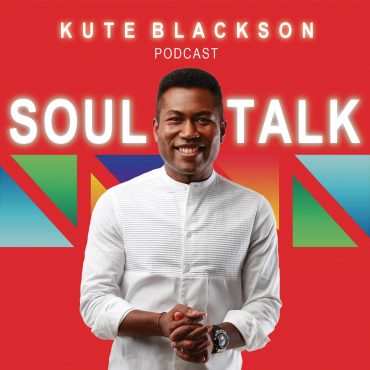
Blacks, the Second Great Awakening, and Abolition
Our Scripture verse for today is John 8:36 which reads: “If the Son therefore shall make you free, ye shall be free indeed.” Our History of Black Americans and the […]
 play_arrow
play_arrow
 play_arrow
play_arrow
 play_arrow
play_arrow
 play_arrow
play_arrow
 play_arrow
play_arrow
The World Needs You Now – A Life Changing Invitation podcast
 play_arrow
play_arrow
THE FRUIT LOOPS TASTE CHALLENGE EXPOSED! -You Should Know Podcast- podcast
 play_arrow
play_arrow
Make life harder (and better): Learn another language. podcast
 play_arrow
play_arrow
Stop Announcing, Start Becoming podcast
 play_arrow
play_arrow
What Makes Men Feel Insecure podcast
 play_arrow
play_arrow

Our Scripture verse for today is Acts 17:26-27 which reads: “And hath made of one blood all nations of men for to dwell on all the face of the earth, and hath determined the times before appointed, and the bounds of their habitation; That they should seek the Lord, if haply they might feel after him, and find him, though he be not far from every one of us: For in him we live, and move, and have our being; as certain also of your own poets have said, For we are also his offspring.”
Our History of Black Americans and the Black Church quote for today is from Lee June, a professor at Michigan State University and the author of the book, “Yet With A Steady Beat: The Black Church through a Psychological and Biblical Lens.” He said, “It is extremely important psychologically to recognize that Blacks were involved with Christianity long before the American sojourn in mass numbers because if we do not recognize the rich history of achievements prior to America, then we will have primarily a ‘slave mentality’ and this can damage is psychologically.”
In this podcast, we are using as our texts: From Slavery to Freedom, by John Hope Franklin, The Negro Church in America/The Black Church Since Frazier by E. Franklin Frazier and C. Eric Lincoln, and The Black Church In The U.S. by William A. Banks.
Our first topic today is a continuation of some good work done for the “God In America” series titled “The Origins of the Black Church” which was aired by the Public Broadcasting Service. This is just a brief historical overview; we will delve into these topics in great detail in upcoming episodes
EMANCIPATION AND RECONSTRUCTION
For those who yearned for freedom, the Emancipation Proclamation signed by Abraham Lincoln on Jan. 1, 1863, seemed to re-enact the Exodus story of the ancient Israelites: God had intervened in human history to liberate his chosen people. But the stroke of a presidential pen did not eliminate poverty and dislocation, chaos and uncertainty. In the North, black churches organized missions to the South to help newly freed persons find the skills and develop the talents that would allow them to lead independent lives. Education was paramount. African American missionaries, including AME Bishop Daniel Alexander Payne, established schools and educational institutions. White denominations, including Presbyterian, Congregational and Episcopal congregations, also sent missionaries to teach reading and math skills to a population previously denied the opportunity for education. Over time, these missionary efforts gave rise to the establishment of independent black institutions of higher education, including Morehouse College and Spelman College in Atlanta.
But there were tensions. Some Northerners, including Payne, did not approve of the emotional worship style of their Southern counterparts; he stressed that “true” Christian worship meant proper decorum and attention to reading the Bible. Many Southerners were disinterested in Payne’s admonitions. They liked their emotive form of worship and saw no reason to cast it aside. Nevertheless, most black Southerners ended up joining independent black churches that had been formed in the North before the Civil War. These included the African Methodist Episcopal (AME) and the African Methodist Episcopal Zion (AMEZ). In 1870, Southerners formed the Colored (now “Christian”) Methodist Episcopal Church, and in 1894, black Baptists formed the National Baptist Convention.
In all these denominations, the black preacher stood as the central figure. W.E.B. Du Bois immortalized these men in his famous essay, “Of the Faith of the Fathers,” that appeared in his seminal work, The Souls of Black Folk. Du Bois described the preacher as “the most unique personality developed by the Negro on American soil,” a man who “found his function as the healer of the sick, the interpreter of the Unknown, the comforter of the sorrowing, the supernatural avenger of wrong, and the one who rudely but picturesquely expressed the longing, disappointment, and resentment of a stolen and oppressed people.”
WOMEN
Men commanded the pulpits of the black church; they also dominated church power and politics. Denied the chance to preach, growing numbers of women, mostly middle class, found ways to participate in religious life. They organized social services, missionary societies, temperance associations and reading groups. They fought for suffrage and demanded social reform. They wrote for religious periodicals, promoting Victorian ideals of respectability and womanhood. Like the crusading newspaper reporter Ida B. Wells, they protested racial injustice, lynching and violence.
Among the most influential women was Nannie Burroughs, who served as corresponding secretary of the Woman’s Convention of the National Baptist Convention, U.S.A. In a major address to the NBC delivered in 1920, Burroughs chastised black ministers when he said: “We might as well be frank and face the truth. While we have hundreds of superior men in the pulpits, North and South, East and West, the majority of our religious leaders have preached too much Heaven and too little practical Christian living. In many, the spirit of greed, like the horse-leach, is ever crying, ‘Give me, give me, give me.’ Does the absorbing task of supplying their personal needs bind leaders to the moral, social and spiritual needs of our people?”
Men, she argued, must welcome women into the affairs of government. Women must organize and educate. “There will be protest against politics in the Church,” she predicted, but insisted, “It is better to have politics than ignorance.”
Our second topic for today is “The First West African States: Mali (Part 3)” from John Hope Franklin’s book, From Slavery to Freedom. He writes:
When Man-sa-Musa died in 1337, Mali could boast of a powerful and well-organized political state. Traveling in the area a few years later, Ibn Ba-tu-ta, the celebrated Arabian geographer, reported that he was greatly impressed by “the discipline of its officials and provincial governors, the excellent condition of public finance, the luxury, the rigorous and complicated ceremonial of the royal receptions, and the respect accorded to the decisions of justice and to the authority of the sovereign.”
In the middle of the fourteenth century Europe was just beginning to feel the effects of its commercial revolution and European states had not yet achieved anything resembling national unity; but Mali under Man-sa-Musa and his successor, Suleiman [SU-LAY-MAN], enjoyed a flourishing economy with good international trade relations and could point with pride to a stable government extending several hundred miles from the Atlantic to Lake Chad. The people adhered to a state religion that had international connections, and learning flourished in the many schools that had been established. It was not until the fifteenth century that the kingdom showed definite signs of decline and disintegration. The powerful blows of the Song-hay and the attacks of the Mos-si combined to reduce the power of Mali. The decline did not go on indefinitely, however, and Mali continued to exist for many years as a small, semi-independent state.

Our Scripture verse for today is John 8:36 which reads: “If the Son therefore shall make you free, ye shall be free indeed.” Our History of Black Americans and the […]







Copyright Blackpodcasting 2025